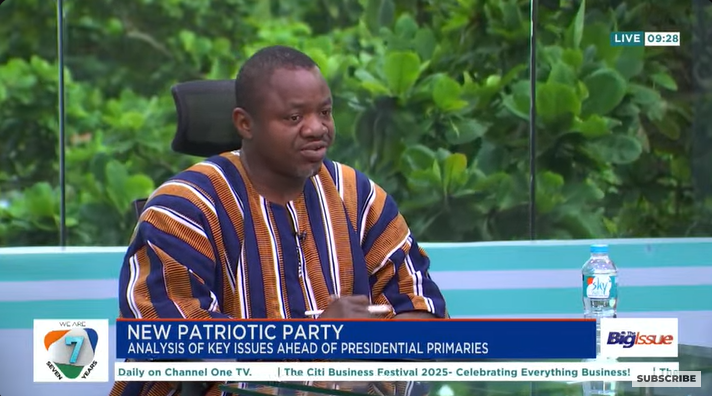Member of Parliament for Lambussie, Professor Titus Beyuo, has weighed in on the recent industrial action by the Ghana Registered Nurses and Midwives Association (GRNMA), describing it as premature, even though he supports the legitimacy of their demands.
Appearing on The Big Issue on Saturday, June 21, 2025, Prof. Beyuo, himself a seasoned health professional, acknowledged that strikes are a legitimate form of protest in labour negotiations. However, he cautioned that they must be used responsibly and in a manner that aligns with the status of negotiations.
“Strikes are one of the means by which labour can make a demand or protest for improved conditions of service. But when used whimsically, it is not good,” he remarked.
He conceded that the grievances raised by the nurses and midwives were genuine, but questioned the timing of the action.
“In this particular instance, the nurses had a very genuine case to demand what they were demanding, but I felt the strike was a bit premature considering that the government was talking.”
The nationwide strike by GRNMA led to widespread disruption across health facilities, creating strain on patients and healthcare providers alike. Though the industrial action has now been suspended and services have resumed, its impact has drawn mixed reactions from the public and stakeholders.
Prof. Beyuo pointed out that ongoing negotiations between the government and the GRNMA should have been given more time to yield results, noting that the two parties had already met multiple times.
“Normally, the union will go on strike if the government does not talk. I think they [the government] were making some progress, but the nurses felt the progress was slow. But you have to look at things in terms of context and what is happening nationally, and also the economy. So, having had about six meetings, and suddenly a strike comes, that is unexpected,” he explained.
He also criticised the sudden and total withdrawal of services during the strike, arguing that in healthcare, industrial actions should be staged in phases to avoid jeopardising patient welfare.
“The strike also escalated quickly to total withdrawal of service. In the health sector, the intention of the strike is not to punish the patient; it is to force the employer to talk. So it will start with services that are not so essential, then you progress to emergencies, but in this case, they went quickly to them, abandoning work totally. It means that patients were struggling and not cared for. That is regrettable,” he said.
In his closing remarks, Prof. Beyuo urged for calm and responsible commentary from both politicians and the public in times of labour unrest. He noted that inflammatory remarks can stall progress at the negotiation table.
“Commentary about the strike was not helpful, and I will advise all persons—political persons and other communicators—that when these things happen, we should be mindful of our commentaries. It makes negotiations very difficult,” he cautioned.


